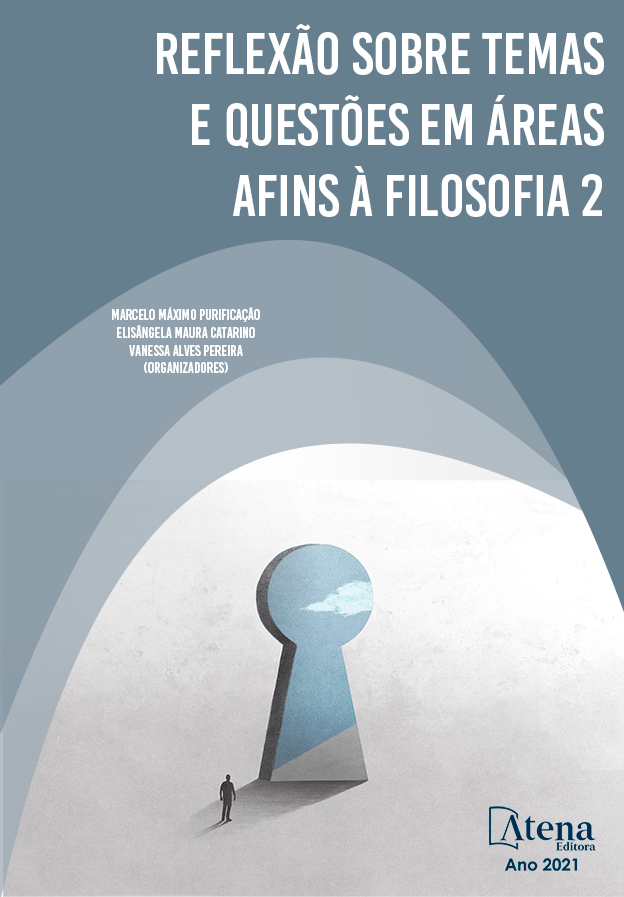
PRINCÍPIOS BÁSICOS PARA A EDUCAÇÃO DA CRIANÇA NA PERSPECTIVA DE KANT E ROUSSEAU PRINCÍPIOS BÁSICOS PARA A EDUCAÇÃO DA CRIANÇA NA PERSPECTIVA DE KANT E ROUSSEAU PRINCÍPIOS BÁSICOS PARA A EDUCAÇÃO DA CRIANÇA NA PERSPECTIVA DE KANT E ROUSSEAU PRINCÍPIOS BÁSICOS PARA A EDUCAÇÃO DA CRIANÇA NA PERSPECTIVA DE KANT E ROUSSEAU PRINCÍPIOS BÁSICOS PARA A EDUCAÇÃO DA CRIANÇA NA PERSPECTIVA DE KANT E ROUSSEAU PRINCÍPIOS BÁSICOS PARA A EDUCAÇÃO DA CRIANÇA NA PERSPECTIVA DE KANT E ROUSSEAU PRINCÍPIOS BÁSICOS PARA A EDUCAÇÃO DA CRIANÇA NA PERSPECTIVA DE KANT E ROUSSEAU
O presente artigo tem como objetivo abordar os princípios básicos para se educar uma criança de acordo com a perspectiva dos pensadores Immanuel Kant e Jean-Jacques Rousseau. A pesquisa tem como foco para a formação do sujeito crítico e atuante na sociedade. Diante disso, levanta-se os seguintes questionamentos: Quais os princípios fundamentais para a formação da criança? Quais as semelhanças e divergências entre as teorias propostas pelos respectivos filósofos? Metodologicamente o estudo fundamentou-se em uma revisão bibliográfica em obras dos dois autores e em estudos e pesquisas que interpretam suas respectivas teorias, tomadas como fontes que subsidiaram a análise, no exercício de aproximação e distinção dos aspectos indicados pelos autores. Como resultado das discussões apontamos que a educação está intrinsicamente relacionada ao preparo para a vivência social, acompanha todo o desenvolvimento do ser humano até sua vida adulta. O estudo mostra que ambas as teorias educacionais caminham na mesma direção enquanto delineamento para a inserção da criança no seu meio, contribuindo para a formação de um indivíduo e cidadão crítico, capaz de atuar na sociedade. Os aspectos abordados tornaram-se relevantes no discurso pedagógico moderno.
PRINCÍPIOS BÁSICOS PARA A EDUCAÇÃO DA CRIANÇA NA PERSPECTIVA DE KANT E ROUSSEAU PRINCÍPIOS BÁSICOS PARA A EDUCAÇÃO DA CRIANÇA NA PERSPECTIVA DE KANT E ROUSSEAU PRINCÍPIOS BÁSICOS PARA A EDUCAÇÃO DA CRIANÇA NA PERSPECTIVA DE KANT E ROUSSEAU PRINCÍPIOS BÁSICOS PARA A EDUCAÇÃO DA CRIANÇA NA PERSPECTIVA DE KANT E ROUSSEAU PRINCÍPIOS BÁSICOS PARA A EDUCAÇÃO DA CRIANÇA NA PERSPECTIVA DE KANT E ROUSSEAU PRINCÍPIOS BÁSICOS PARA A EDUCAÇÃO DA CRIANÇA NA PERSPECTIVA DE KANT E ROUSSEAU PRINCÍPIOS BÁSICOS PARA A EDUCAÇÃO DA CRIANÇA NA PERSPECTIVA DE KANT E ROUSSEAU
-
DOI: 10.22533/at.ed.73121110312
-
Palavras-chave: Educação da Criança; Pedagogia; Immanuel Kant; Jean-Jacques Rousseau.
-
Keywords: Child Education; Pedagogy; Immanuel Kant; Jean-Jacques Rousseau.
-
Abstract:
This article aims to address the basic principles for educating a child according to the perspective of thinkers Immanuel Kant and Jean-Jacques Rousseau. The research focuses on the formation of the critical subject and active in society. Therefore, the following questions are raised: What are the fundamental principles for the formation of the child? What are the similarities and divergences between the theories proposed by the respective philosophers? Methodologically, the study was based on a bibliographic review on the works of the two authors and on studies and research that interpret their respective theories, taken as sources that supported the analysis, in the exercise of approximation and distinction of the aspects indicated by the authors. As a result of the discussions, we pointed out that education is intrinsically related to the preparation for social experience, accompanying the entire development of the human being until his adult life. The study shows that both educational theories are moving in the same direction while outlining the child's insertion in their environment, contributing to the formation of an individual and critical citizen, capable of acting in society. The aspects addressed became relevant in the modern pedagogical discourse.
-
Número de páginas: 23
- Joelma Fernanda de Sales Carneiro Dutra


